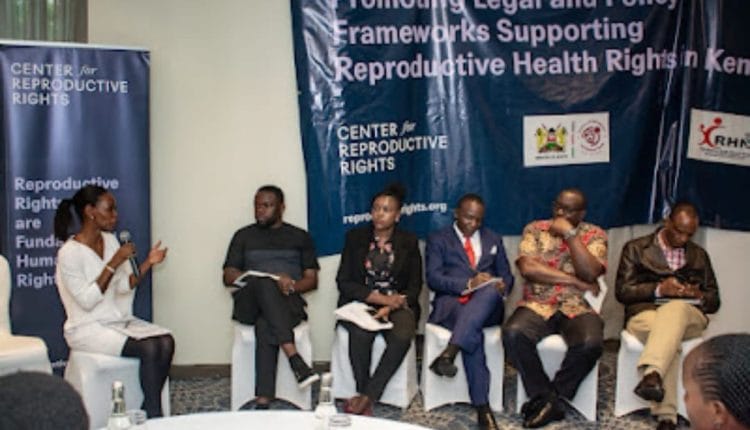Reproductive Health Stakeholders Convene in Nairobi to Address Triple Threat in Nairobi County
By Shadrack Nyakoe
Reproductive health stakeholders have convened in Nairobi to address the escalating triple threat of HIV, teenage pregnancies, and gender-based violence (GBV) in Nairobi County.
The meeting organized by the Center for Reproductive Rights and the Reproductive Health Network Kenya brought together government officials, healthcare providers, non-governmental organizations (NGOs), community leaders, and civil society partners to strategize and implement comprehensive solutions to these pressing issues.
During the meeting, participants emphasized the necessity of providing integrated healthcare services to collectively address HIV, teenage pregnancies, and gender-based violence (GBV).
These include expanding access to sexual and reproductive health services, enhancing HIV prevention and treatment programs, and offering comprehensive support for GBV survivors.
They also highlighted the critical role of education and awareness campaigns by improving knowledge about safe sexual practices, consent, and available health services, with the aim to empower individuals, especially the youth, to make informed reproductive health decisions.
Read also:- Kenya’s Healthcare System Receives Boost with 66 New Paediatric Nursing Specialists
On policy and advocacy, they stated that strengthened policy frameworks and advocacy efforts were essential for enforcing existing laws and developing new policies that protect and promote reproductive health rights.
Regarding community engagement, they stressed the importance of involving community leaders and organizations whose role is crucial in reaching vulnerable populations and fostering an environment of support and accountability.
Mary Akubo, from Ministry of Health reproductive and maternal health division, highlighted the urgency of the situation: “We are at a critical juncture where coordinated action can significantly reduce the burden of these interlinked issues. The ministry is working together with all stakeholders to create a safer, healthier future for the youth.”
She revealed that the Kenyan government, through the Ministry of Health and in partnership with international donors and NGOs, had implemented the Kenya Reproductive, Maternal, Newborn, Child, and Adolescent Health (RMNCAH) Investment Framework.
This framework focuses on improving reproductive health services in slums by enhancing service delivery, upgrading health infrastructure, and making reproductive health services accessible and affordable for everyone, including residents in informal settlements.
She noted that this collaborative effort had led to significant improvements in the availability and quality of reproductive healthcare in these communities.
John Kamau, a representative from a local NGO, stressed the importance of addressing cultural barriers.
He mentioned that changing deep-seated norms and beliefs requires sustained effort and engagement, emphasizing the need to work hand-in-hand with communities to foster understanding and acceptance of reproductive health initiatives.
Nairobi County has been grappling with a significant rise in HIV infections, particularly among adolescents and young adults.
Compounding this issue is the alarming rate of teenage pregnancies, which not only impacts the health and future prospects of young women but also perpetuates a cycle of poverty and limited opportunities.
GBV remains a pervasive challenge, further undermining the health and well-being of individuals and communities.
According to Kenya Demographic and Health Survey (KDHS) 2022 key indicators, show that the main drivers of teenage pregnancy include lack of education, poverty, harmful cultural practices, and barriers to accessing sexual and reproductive health services.



